Books and bow wows–can it get any better?
In St. Louis, the Humane Society of Missouri‘s Shelter Buddies Reading Program is building the confidence of both canines and kids.
Young people from ages 6 to 15 can volunteer. They receive 10 hours of training to learn how to interact with the animals (under supervision, of course). The kids are also taught how to read important cues from their new furry friends, like how to tell if the pup is getting scared or anxious.
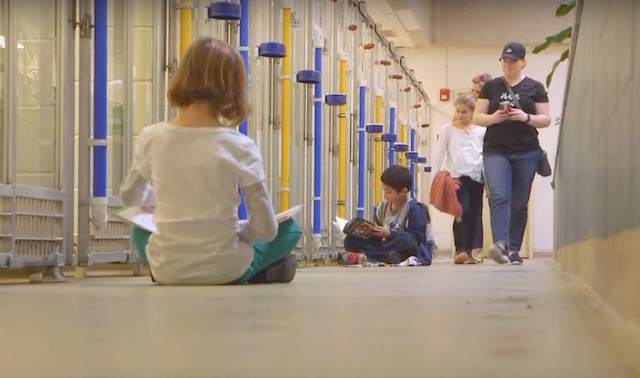
“We wanted to help our shy and fearful dogs without forcing physical interaction with them to see the positive effect that [the volunteers] could have on them,” program director Jo Klepacki told The Dodo.
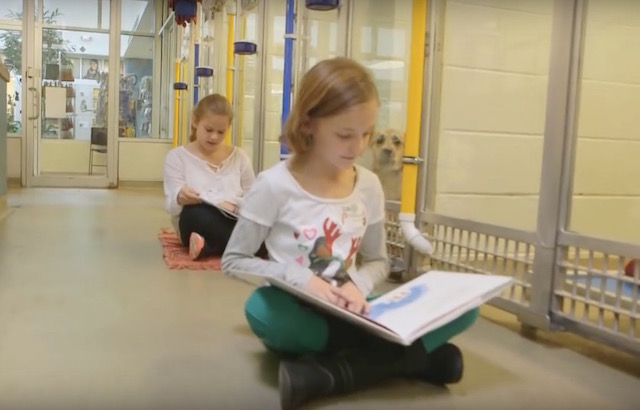
Those hesitant hounds are the ones less likely to get adopted–people look them over if they’re cowering in a corner–so the kids are encouraged to read aloud to them in front of their kennels.
Oftentimes, the shy dogs relax and become curious, making their way closer to their reading buddies, who encourage the behavior with treats.

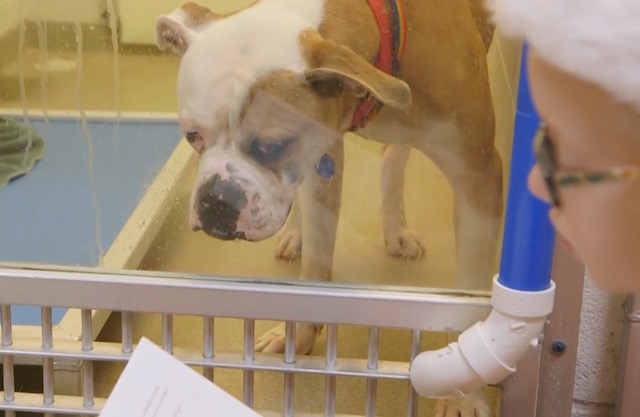
“Hearing a child reading can really calm those animals,” said Klepacki to The Dodo.
And the hyper dogs? Well, they tend to quiet down and listen to the storytellers, too!
Once the shelter pups associate humans with good things, they’re more likely to interact with potential adopters–and find their forever homes.
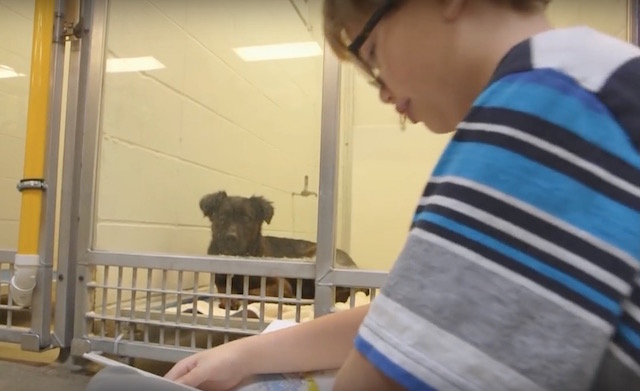
What’s more, children are able to improve their reading skills in front of the non-judgmental audience. They also receive invaluable life lessons about how to treat animals well, learning that dogs have feelings, just like them.
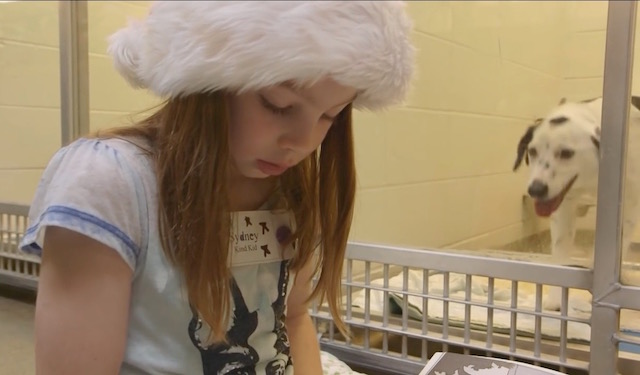
“It’s encouraging children to develop empathy with animals…They’re seeing fearfulness in these animals, and seeing the positive effect they can have,” Klepacki told The Dodo.
The once-monthly program has been extremely popular with kids and canines alike. Though it was just launched last Christmas, Klepacki says that it’s already helped some dogs get adopted.
Eventually, the program coordinator hopes to bring Shelter Buddies to all Humane Society of Missouri locations, and to invite shelter cats in on the fun.
Imagine: if more kids were able to learn to connect and empathize with animals at a young age, it could potentially help in preventing future animal abuse.
Do you think programs like this should get picked up nationwide? Tell us!
